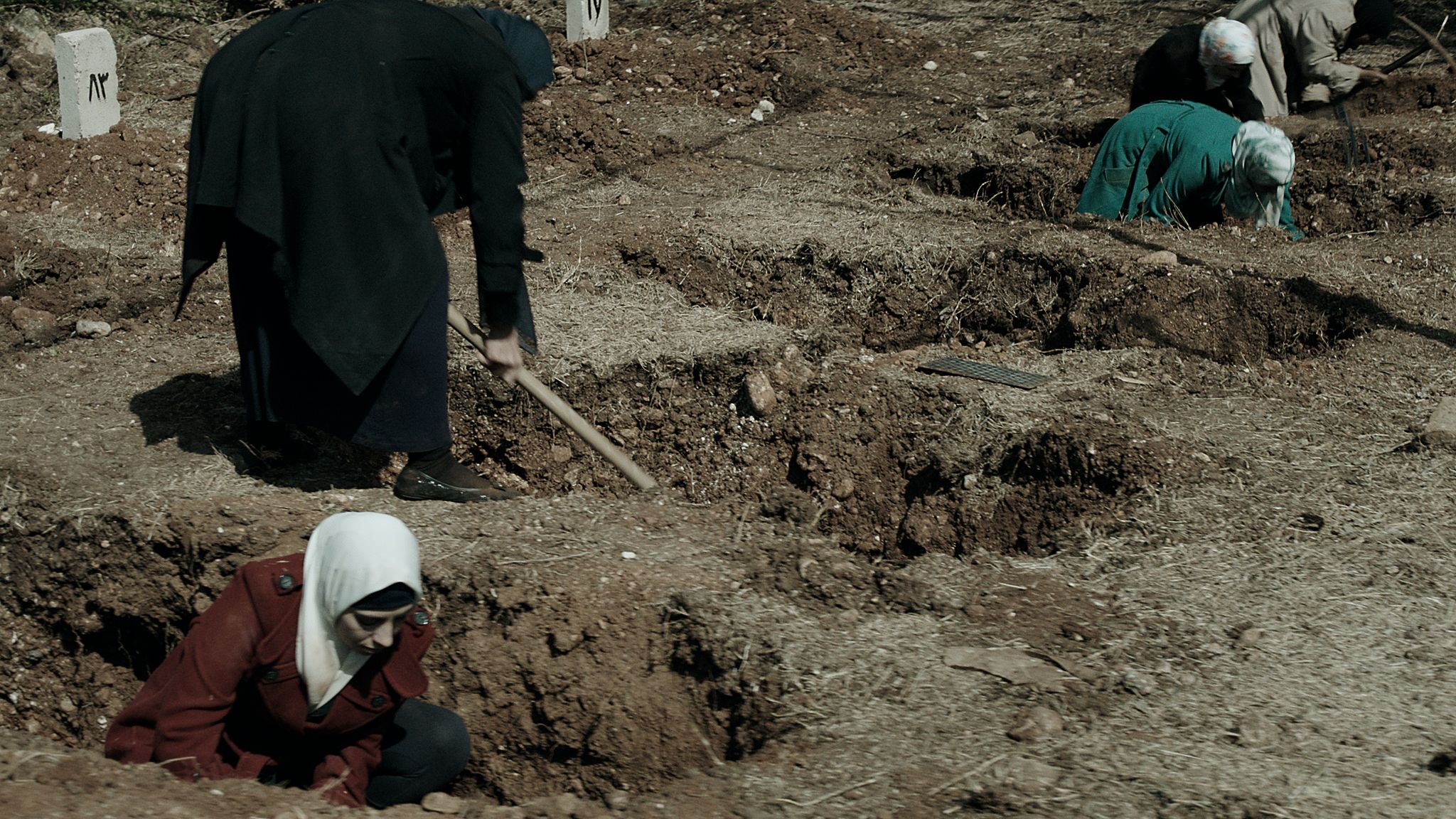Venice Film Review: ‘The Day I Lost My Shadow’
By Jay Weissberg
LOS ANGELES (Variety.com) – The first 15 minutes of “The Day I Lost My Shadow” pack a punch that never quite returns to Soudade Kaadan’s fiction debut. Set in Damascus and environs at the start of the war in 2012, the film follows a mother whose search for a simple cooking gas cylinder leads her into a nightmare journey of internecine conflict that robs people of their shadows when it doesn’t snuff out their lives. Shooting in Lebanon largely with exiled Syrian cast and crew, Kaadan aims for a cinéma vérité style with touches of magic realism, yet characterless visuals aren’t able to achieve the desired poetic impact. Still, the topicality, together with Venice’s Lion of the Future prize for best debut, assures an active festival life.
Panic appears to overtake a Damascus neighborhood as pharmacist Sana (Sawsan Arsheed) and her young son Khalil (Ahmad Morhaf Al Ali) race upstairs to their apartment, stalling when a security agent demands to know where they’re headed and then shooting past a funeral on a lower floor before reaching the safety of home. Once through the door, the reason for the mad dash becomes clear: They’re wanting to beat water rationing and do the laundry before the power cuts. These early moments are the best, warmly capturing the loving relationship between mother and son, whose mutual emotional dependence is crucial for appreciating the level of Sana’s stress later in the film.
The next day she lines up for a replacement gas canister, looking forward to making a hot meal for Khalil, but supplies quickly run out. Anxious to find one at another location, she teams up with siblings Jalal (Samer Ismail) and Reem (Reham Al Kassar), hiring a cabbie (Yassin Albokhari) to take them to the outskirts of town. An unexpected road block leads the driver to bolt in desperation, and they find themselves hiding from government soldiers in an olive grove. It’s there that Sana notices Jalal has no shadow.
The concept owes something to folklore and the idea that someone without a shadow is a person without a soul, but Kaadan gives it an intriguing, hypothetically effective spin: those without shadows are traumatized by the brutality of war (in Jalal’s case, he lost his after witnessing his brother’s torture and death). Though less than 10 miles from the city, the trio are trapped in the countryside with no means of communication, hiding from roaming soldiers and government allies while seeking a way of getting back to Damascus.
Thanks to the way Kaadan swiftly built sympathy for the bond between Sana and Khalil, the mother’s deep distress at being separated from her son, with no means of contacting him, carries palpable weight, adding a level of angst as she searches for a way to get home. The film is at its best in conjuring the fear of a society careening toward catastrophe, trying to live normal lives at the start of the war even while bombs are falling within earshot. Sana’s almost used to negotiating the chaos in a city rent by fighting, but the uncertainty of the surrounding areas, and the difficulty of identifying allies, become too much to bear when added to concerns for her son.
While the story itself is potent, the dialogue is unremarkable and the characters of Jalal and Reem are less compelling than their situations warrant. Visuals are also a weak point, as lackluster compositions fail to bring out the subject’s full, terrifying potential.

